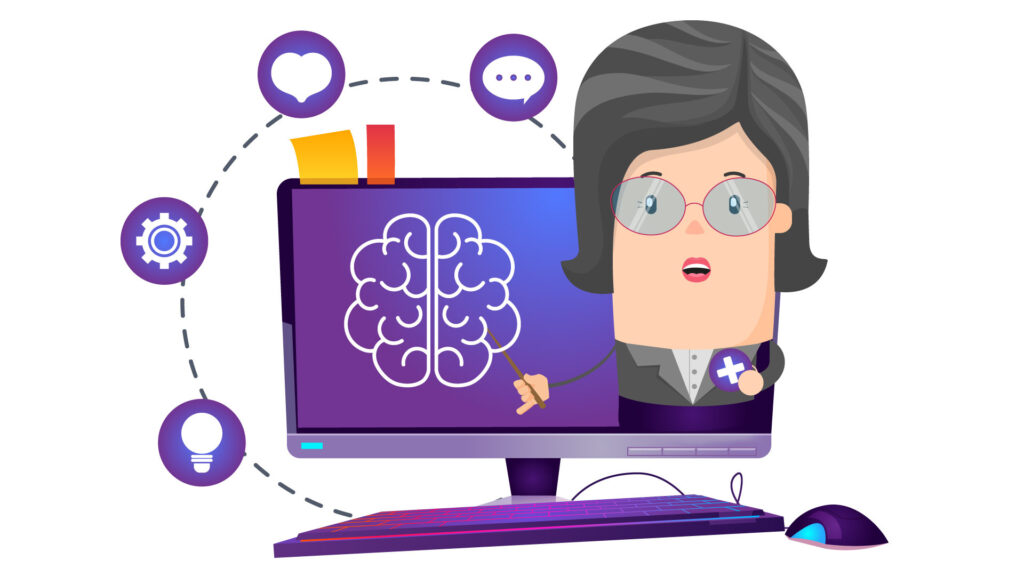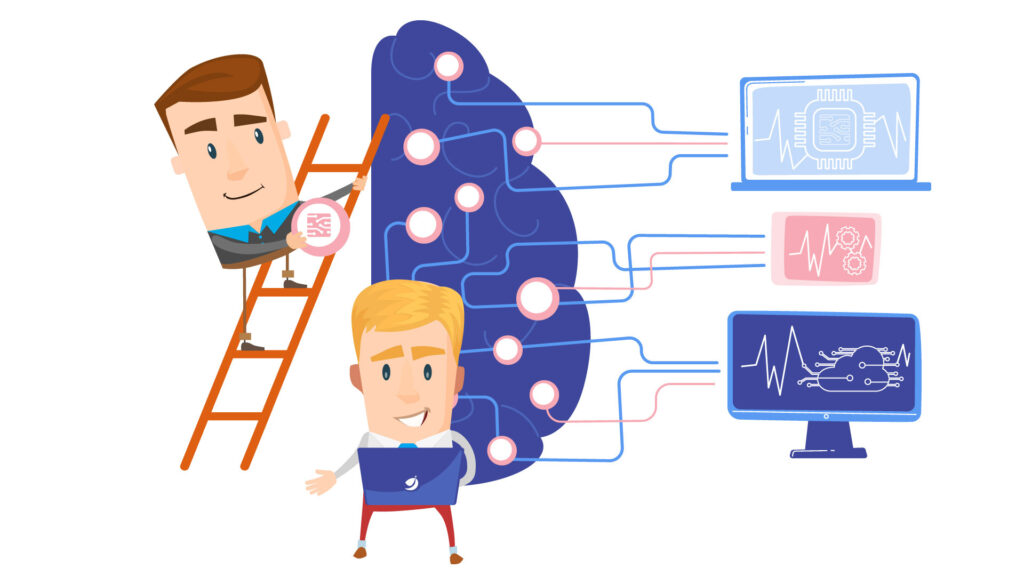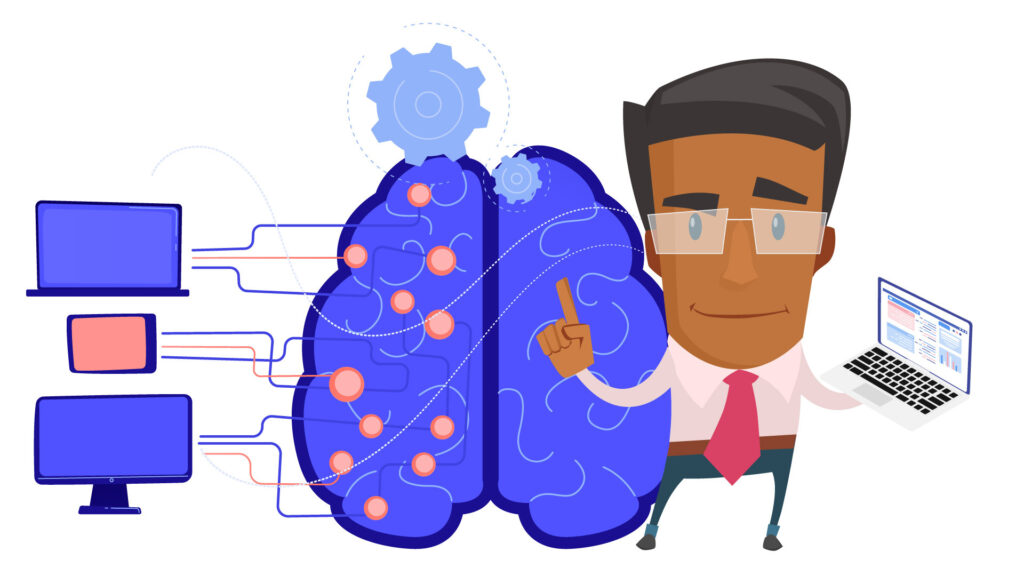It is only today’s innovative technology that has reshaped the face of every sector- be it medicine, construction, or business. Let alone the business or specifically, the eCommerce sector has benefited the most from the latest technological trends. In the world of online buying and selling, almost every customer interaction is handled through Machine Learning in eCommerce.
The evolution of digital commerce has taken a leap after the introduction of Machine Learning (ML), which is a subfield of Artificial Intelligence (AI) but used interchangeably, into every process of eCommerce, including Sales, Marketing, Customer Care, And Inventory Management. Machine Learning e-commerce has become the talk of today with the newer algorithms for online shopping systems every day.
If you own an online business and want to experience the wonder of machine learning e-commerce, this article is for you. We will be discussing here the algorithms for e-commerce and the perks of artificial intelligence in e-commerce. Stay hooked till the end!

What is Machine Learning?
By definition, Machine Learning is referred to as a field of Artificial Intelligence (AI) in which a system can learn and improve from experience without following any explicit instructions, algorithms, or programming. Machine learning helps develop digital programs to access data and utilize it to learn for themselves.
How Does it Work?
The basic idea of Machine Learning is to make computers capable of learning autonomously without needing human assistance or interaction and respond accordingly. Just like our human brain gains information, understands it, and then adjusts actions according to it, machine learning also enables a digital device to input data such as knowledge graphs or training data, understand the data entities, and then make interfaces based on that understanding. Through machine learning, our computer looks for patterns in data domains and learns from instructions or experiences.
There are three main categories of Machine Learning that include:
- Supervised Learning
In this type of machine learning, algorithms are supplied with labeled training data and predefined variables to assess for correlations. In supervised learning, the input and output are both specified and supervised.
- Unsupervised Learning
Unsupervised machine learning uses algorithms with unclassified and unlabeled sets of data. This type of machine learning makes systems work out a function by identifying structure from unlabeled information. However, the system does not know the exact output, but it predicts what the output should be.
- Reinforcement Learning
In reinforcement machine learning, a system is taught to complete a multi-step process with clear pre-defined rules. This method within a specific context allows computer software to determine the best results automatically with maximized performance.
Machine Learning Technology Over the Years
It all started in 1950 when Alan Turing introduced the “Turing Test” to check the human-like intelligence of a computer. In 1952, Arthur Samuel developed a computer game of checkers incorporating self winning moves in the program of the game.
Then a network stimulating the human thought processing ability was brought by Frank Rosenblatt in 1957. A decade later, the nearest neighbor algorithm was written to map out routes automatically.
More and more innovations were introduced with the passing years, such as the self-navigating cart in 1979, NETtalk in 1985, a baby-like talking program, and in 1990 base of Machine Learning shifted from knowledge to data approach. The evolution speeds up, and two decades later, Microsoft made it possible to interact with computers via gestures and movements.
Today, the advancement of machine learning has progressed to make self-driving vehicles and reach out to exoplanets in the galaxy. This new science of computers performing without being programmed has presented a newer definition of technology. The future of machine learning looks like a world where humans and computers will be identical and more robots will be found everywhere.

Benefits of eCommerce Machine Learning
The top-notch technology of machine learning is benefiting businesses, especially online businesses, with its invaluable approaches. Machine Learning algorithms for online shopping systems have enabled online retailers to improve inventory management and customer experience.
What do other advantages machine learning offer to your businesses? Let’s find out here!
Personalization and Targeting Customers
AI, specifically machine learning, delivers high-level personalization for online sellers and buyers. eCommerce algorithms tailor the user experience to each site visitor by analyzing customer behavior and data. This not only makes the shopping experience easier for buyers but also helps retailers target the most suited audience.
Product Recommendations
Another benefit of using machine learning in eCommerce is the product recommendations. When a customer visits an online store, the machine learning recommendation engine shows personalized results as per the customer’s preferences.
Site Search Auto-complete
Many eCommerce platforms use machine learning algorithms to make search functionality more intuitive by enabling auto-complete capability. The new suggestions are predicted from the previous search results. Also, the auto-complete prevents users from inserting information again and again.
Managing Supply and Demand
Through machine learning, you can successfully manage your online store. Monitoring stocks, reordering items, dealing with manufacturers, managing demands, supplies, and revenues can all be best done by machine learning algorithms for e-commerce.
Increased Conversions
Machine learning algorithms for e-commerce can also help boost your site’s conversion rate in many ways. These algorithms for online shopping systems deliver smarter search results by using natural language processing to provide exactly what the shopper is looking for.
Relevant Marketing Campaigns
Machine learning e-commerce can be unimaginably beneficial in sales and marketing as well. eCommerce marketing shares many similarities with sales prospecting. Artificial intelligence in e-commerce can help companies attain highly relevant marketing campaigns for their targeted audience. The best marketing campaigns can be tailored with increased information using e-commerce AI tools.
Fraud Detection
Since machine learning algorithms for e-commerce can process sheer volumes of data, they can identify real transactions and detect fraud as well. The algorithms do so by pinpointing the authenticity of actual purchases, and hence unusual transactions from unverified devices of unidentified locations are notified immediately.

How to Adopt Machine Learning in Your eCommerce
After knowing how machine learning works in eCommerce and its benefits, it is now time to learn how you can practically adopt machine learning in your e-commerce. The following four steps will help you understand that.
Step 01: Get familiar with everything Machine Learning
Start off by doing in-depth research in the current trends of machine learning technology in the field of e-commerce and then identifying the needs of your business that you want to get done through machine learning.
Step 02: Leverage Third-Party Expertise
If you find it difficult to analyze and conclude everything on your own, we highly recommend you take the expertise of some professionals who can guide you better. The third-party expertise will help your business fully adopt machine learning algorithms for e-commerce.
Step 03: Technology and capability gap
It is always intelligent to take your company’s capabilities into account while selecting the full implementation of machine learning eCommerce. Many machine learning solutions are easy to adopt but difficult to manage.
Step 04: Start Small and Scale
In relation to the above step, whatever solutions you adopt, you must start from a small scale. The first test and run the tools and analyze your results, and then if the results are in your favor, then you can scale up your machine learning eCommerce tools. This straightforward strategy will surely help you in the longer run.

Conclusion
Introducing the latest machine learning concepts in your eCommerce business may seem a complex and costly practice initially, but honestly, it is all worth it and more. With real and achievable goals in mind, you simply take smaller steps to reach big. Not necessarily do you need to hand over everything to the computer at once, but one by one, you keep introducing a new feature of machine learning in your eCommerce business. Just remember to keep moving as the trends are changing rapidly, so you must progress with the pace.
Are you ready to bring Machine Learning to your business?
This is how the bigger brands and companies are succeeding. Start implementing machine learning concepts to your business like they do, or even better. Click here to get the best solutions for that!






